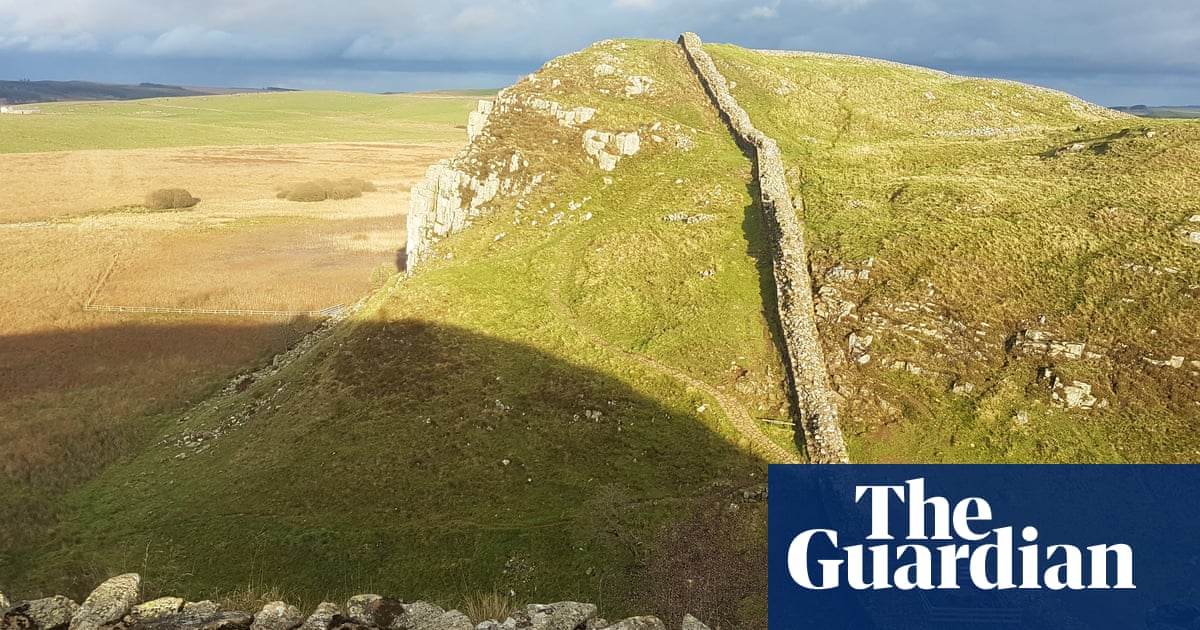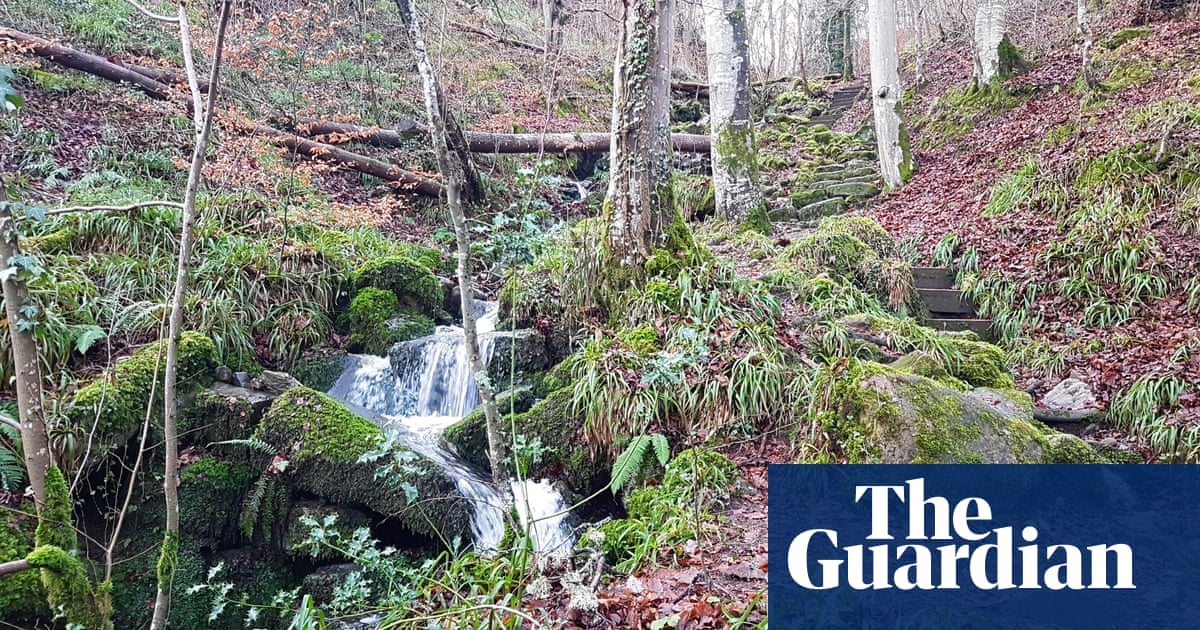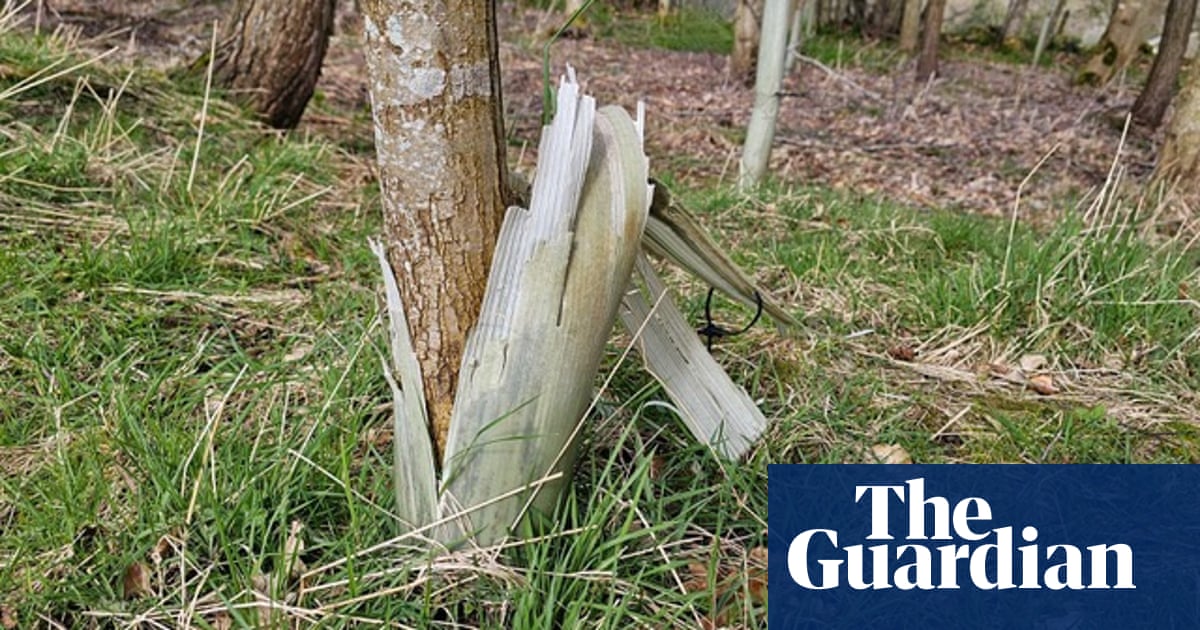
The day may be dreich, but the beech trees at Steel Rigg car park are a frenzy of colour: pumpkin-orange, burnt umber, rust. I set off east along Hadrian’s Wall, well wrapped up against wind and rain. Ahead, the massive outcropping of the Whin Sill, its columnar rocks as grey as the heavy clouds above. It’s a familiar sight. I came here years ago to work as a site planner on a Roman dig and have lived in Northumberland ever since.
The path twists up the steep stone steps of Peel Crag. The wind whips hair across my face as I pause to study the plants. There’s wood sage, honeysuckle, ivy, bilberry and wood sorrel – remnants of a once tree-filled landscape. By a gate at the top, a group of shaggy black cattle are grazing the uptilted southern slope. Waxcaps gleam in the tufty grass – glossy, bright red buttons and wavy, buttery forms.
This section of the wall, running along the crest, is capped by turf and wildflowers. Diminutive leaves of parsley piert, yarrow seedheads, sprawling rock rose, a few late flowers of lady’s bedstraw and meadow buttercups. Wild thyme spreads along the stones, and it was here that I once filmed for a gardening programme about herbs.
That sense of continuity has been disrupted. I’m heading for Sycamore Gap, tramping the switchback of hills till I reach the top of the far rise. Although I know what to expect, it’s with a jolt that I look down into the empty space where the famous tree once stood. It had fitted so perfectly into the bowl of the land, graceful and balanced, a place for kestrel and thrush in an otherwise treeless landscape.
Just a stump remains, boxed in by a fence like a museum exhibit; here stood a tree. Its absence is a shock, and I’m glad no one else is about. There’s a quietness to feel its loss and, into this still moment, the sky briefly clears and a rainbow arcs the sky.
The low sun throws the shadow of the hill across the field, across the crumpled mass of twigs and branches that are left behind. What’s missing is the shadow of a solitary sycamore.












